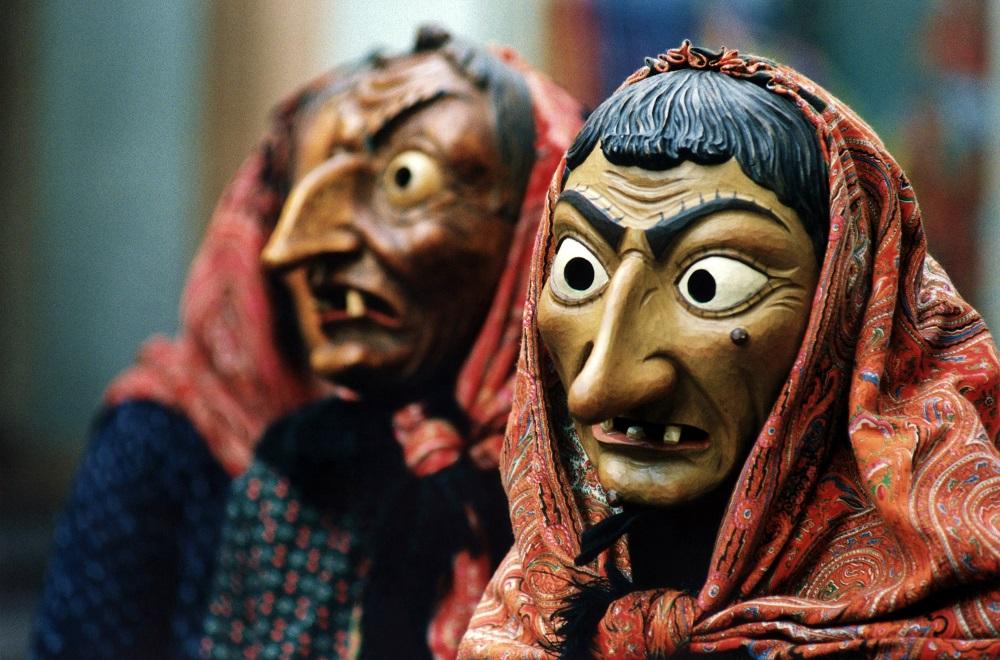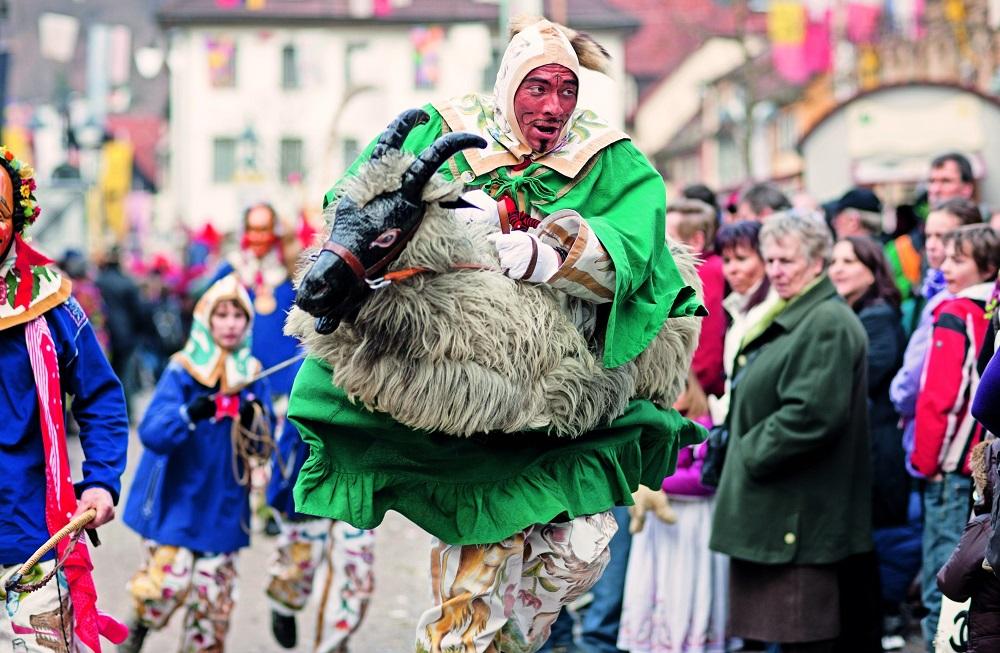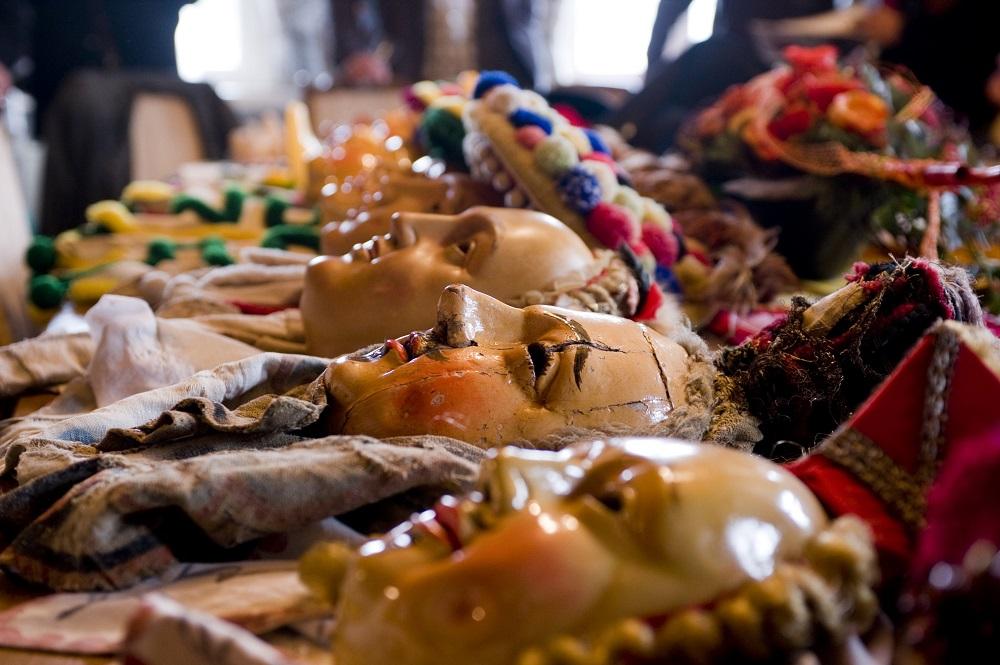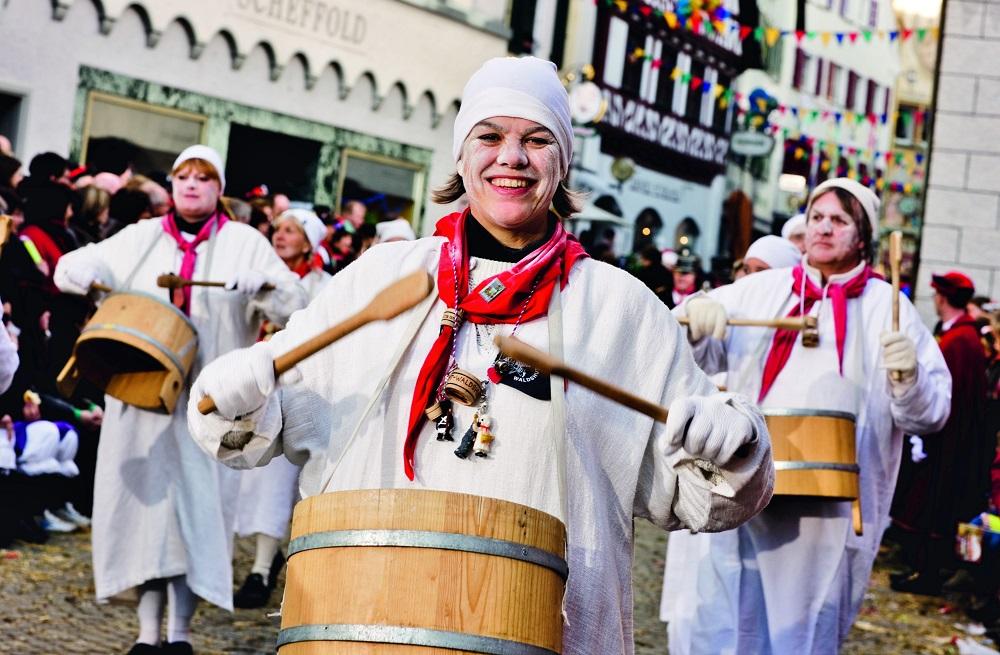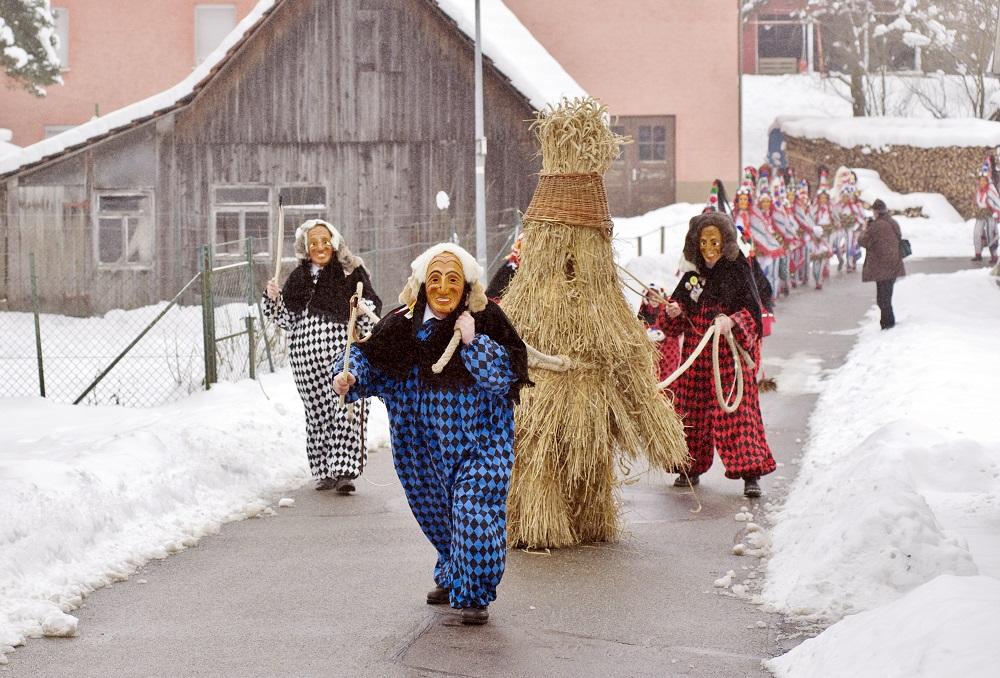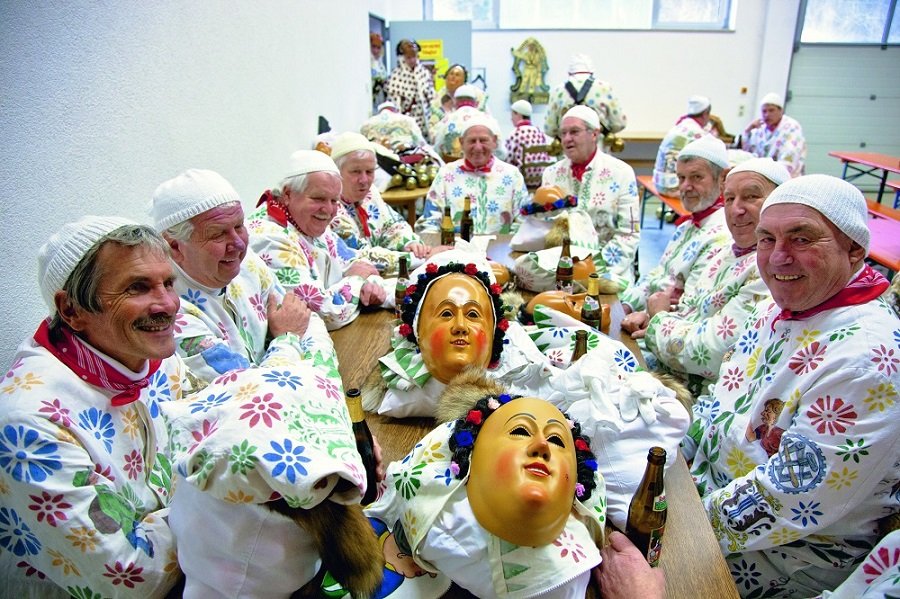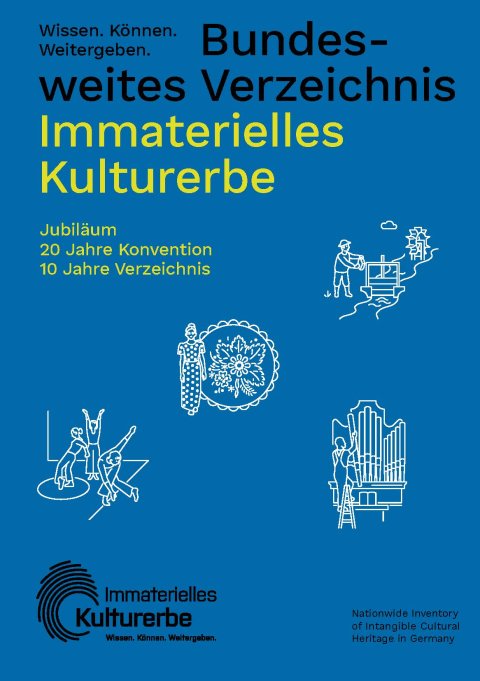Nationwide Inventory of Intangible Cultural Heritage
Swabian-Alemannic Carnival
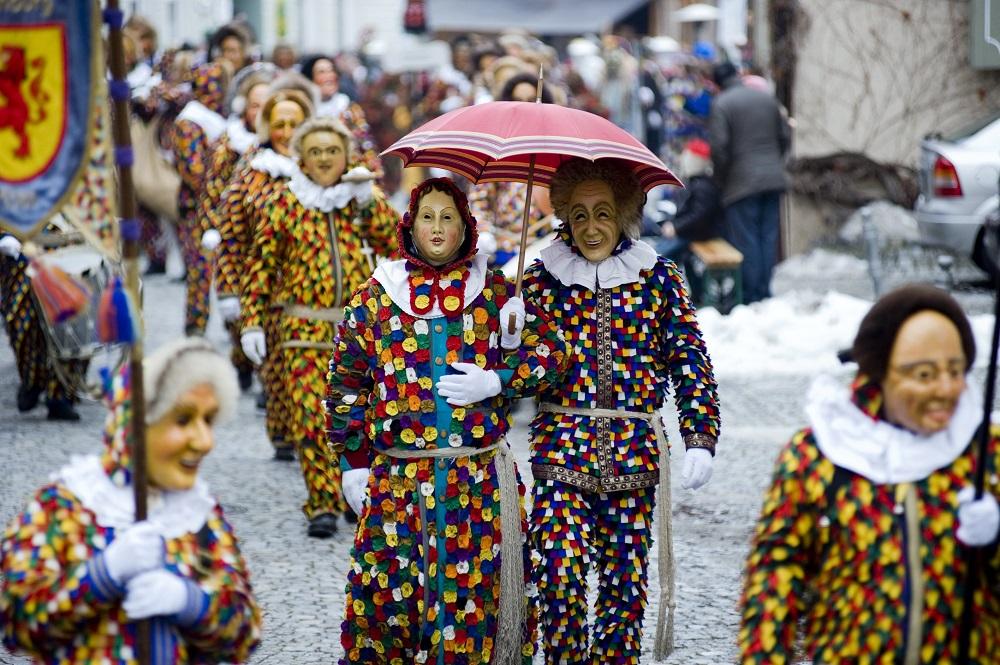
The Swabian-Alemannic carnival, known in the vernacular as “Fasnet”, in its multifarious forms, is actively cultivated by wide sections of the population. Every year on the seventh weekend before Easter this is celebrated in numerous communities in Baden-Württemberg and beyond.
Facts & figures
Crucial date: January/ February
Inscription: 2014
Domains: social practices, rituals and festive events
Where to find: Baden-Württemberg
Contact
Vereinigung Schwäbisch-Alemannischer Narrenzünfte e.V.
Roland Wehrle (President)
@email
www.vsan.de
The customs reveal numerous local variants but all have the same origin: proven to have existed since the 13th Century as a threshold festival before the Easter fasting period, the “Fast-Nacht” was at first a pure orgy of eating and drinking in the context of which, over the course of time, more and more forms of conviviality such as music, dance and theatrical-mimetic elements sprang up.
The complete veiling and masking of the participants became the trademark of the festivities. The temporal beginning of the Fasnet is Twelfth Night, on which fools’ utensils are dusted down. The first main day is the “Dirty (or: fat) Thursday”, three days prior to Shrovetide Sunday. The events come to their climax on Shrovetide Monday and Tuesday with their spectacular processions. In the night of Ash Wednesday all foolery comes to an end. The knowledge of the exercising of the custom is part of the cultural memory of the region.
